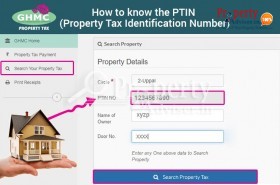Does real estate budget 2020 open different ways on how to save capital gain tax on sale of residential property? With the Nirmala Sitharaman budget approaching, this is the rising question among real estate stakeholders. When you have never done it before, selling your home, that too without professional assistance could be remarkably a tedious and emotionally exhausting task. There could be an “n” number of questions on how, why you are selling your home and to top it off, there will be no sale without bargain until the last minute of the sale.
After all this hectic process, once you get that lucky buyer who thinks of your home as their own and will be willing to pay for it on the spot. You may be thrilled about selling your property and getting a considerable lump sum cash. But, now comes the twist in the entire plot, since this may not be the situation once you realize the tax implications on your capital gain acquired from sale of residential property. But, in real estate budget 2020 going through some necessary points on how to save capital gain tax on sale of residential property, you can actually save on long term capital gain on property.
What is Capital Gain?
Capital gain is the profit on the sale of assets such as shares, bonds or actual properties. When a property’s selling price exceeds its purchase price, it results in capital gain. In simple terms, a capital gain is a distinction between the property’s (higher) selling price and (reduced) cost price. If done properly, there are certain ways to save capital gain tax of a residential property. When a seller acquires loss in selling a property, then it is considered as a capital loss.
Every earnings or profit from the sale of a property shall be taxed as capital gains. The capital gains are the tax on the sale of the property and are categorized as long-term and short-term, depending on the period for which the seller holds the assets. Income Tax Department impose taxes on the capital gain.
Short Term Capital Gain Tax: Before FY 2017-18, when an individual owns a property for less than 3 years and then sold it. Then short-term Capital gain tax on sale of property is imposed on the profit acquired. But, this rule was amended, and the possession time was reduced to 2 years. Short period capital gains tax shall be paid in accordance with the individual income tax slab. No exemptions fall under short-term capital gain tax on the sale of the property.
Long Term Capital Gain Tax: When a person buys a property and sells it after three years, a long-term capital gain is imposed on the profit acquired from the sale. Long-term capital gains attract a 20% tax rate. As on budget 2019 announcement, amendments are done for section 54, and buyers can get an exception by funding long term capital gain on property up to two houses. Earlier, the provision of investment was only limited to one house. Nevertheless, the capital gains limit was fixed at Rs 2 crores.
Budget 2020: How to Calculate Short-term Capital Gains on Sale of Residential Property?
The short-term capital gain tax on sale of property will be calculated as:
Short-term Capital Gain = Full Sale Price - (Expenditure incurred+Cost of Purchase+Cost of Property Improvement)
Let’s assume that an individual purchases a property in 2014 for Rs 30,00,000 and sells it within 2 years for Rs 45,00,000. He paid a brokerage of Rs 20,000.
|
Specifications |
Price Spent |
|
Full Sale Price (Value of Consideration) Expenditure incurred, such as transfer cost, advertisement, and brokerage Net Sale Value Cost of Purchase (Acquisition Cost of the Property) Cost of Property Improvement (Expenses incurred after buying the Property) Short-Term Capital Gains |
45,00,000 20,000 (-) 44,80,000 30,00,000 (-) 0 14,80,000 |
The amount of Rs 14,80,000 will be added to the individual’s taxable income. The tax will be imposed as per the respective individual’s tax slab rates.
Real Estate Budget 2020: How to Calculate Long term Capital Gain on Property?
The long term capital gain tax on the property will be calculated as follows:
Long term Capital Gain on property= Full Sale Price - (Expenditure incurred+Indexed Cost of Purchase+Indexed Cost of Property Improvement)
Let’s assume that an individual purchases a property in 2014 for Rs 30,00,000 and sells it after 4 years for Rs 65,00,000. He paid a brokerage of Rs 20,000.
|
Specifications |
Price Spent |
|
Full Sale Price (Value of Consideration) Expenditure incurred, such as transfer cost, advertisement, and brokerage Net Sale Value *Indexed Cost of Purchase (Acquisition Cost of the Property) *Indexed Cost of Property Improvement (Expenses incurred after buying the Property) Long-Term Capital Gains |
65,00,000 20,000 (-) 64,80,000 (-) 42,00,000 (-) 0 22,80,000 |
The cost of acquisition in 2014 was Rs. 30,00,000.
The Income Tax department, using the Cost Inflation Index, calculates the fair price of the property at the time of its sale, which is 2018.
2018 Fair Price = 30,00,000 * 284/200 = Rs 42,00,000 (* Cost inflation index in 2018-2019 is 284)
Here, the individual will be charged a flat rate of 20% on the Long Term Capital Gain Tax of Rs 22,80,000.
Budget 2020-21: How To Save Long Term Capital Gain on Property?
Although one cannot save tax on short-term capital gain, it is possible in the case of long term capital gain tax.
Section 54f of the Income Tax Act:
Long term capital gain tax from sale of residential property will be excluded as TDS on property purchase if the investment in the purchase of a residence is made in 1 year before the sale or 2 years after the transfer date. According to section 54f of the income tax act, If the new property is sold for the purpose of calculating the capital gain for that property before the expiry of 3 years from the date of acquisition and construction. The acquisition cost shall be cut by the capital gain exempted earlier. The tax exemption will also be given for a property construction for a property within 3 years of the transfer date.
Section 54 EC of Income Tax Act:
You can invest in bonds issued by the National Highway Authority of India (NHAI) or Rural Electrification Corporation (REC) to reduce the tax on capital gains. This is applicable if you have sold the property, but you do not want to spend quickly on buying a house. Within 6 months of the sale of the property, you can spend up to Rs. 50,00,000 in the bonds. One should hold on to these bonds for a minimum period of 5 years. It should be observed that if you want to claim the exemption in that financial year, you should invest before the filing date of returns.
Capital Gains Account Scheme:
In the event that the new property can not be procured before its due date for the year. Then the amount can be deposited with any authorized bank into the Capital Gains account. It is to be noted that if the amount thus deposited remains unused at the end of the period of 3 years from the date of transfer. The amount will be eligible for exemption as though it were used for the purchase/construction of a new residential property, and it will be chargeable to the tax of the year.
Conclusion
Now, you know all the essential tips on how to save capital gain tax on sale of residential property. Although, things don't always work out according to the plan. If you have a loss known as Long Term Capital loss (LTCL) after the property is sold, as a result of sales (other than profits arising out of stocks, mutual funds, etc. on which STT is being paid), may be liable for a long term capital gain tax (LTCG). In the same financial year, when the capital gain can not be adequately compensated, it can be carried forward for eight years but should be only repaid under the same name.
With Nirmala Sitharaman releasing Budget 2020-21 on Feb 1st, 2020, many hope that scrapping off the LTCG tax in real estate budget 2020 will profitable and others are saying real estate investments may reduce. But, will it happen or just give more ways on how to save capital gain tax on sale of residential property, the time needs to decide. Are you interested in staying updated with all the trending real estate budget 2020 news? Browse PropertyAdviser.in to know the latest real estate happenings and all properties for sale in Hyderabad at your fingertips.
By Govi



















